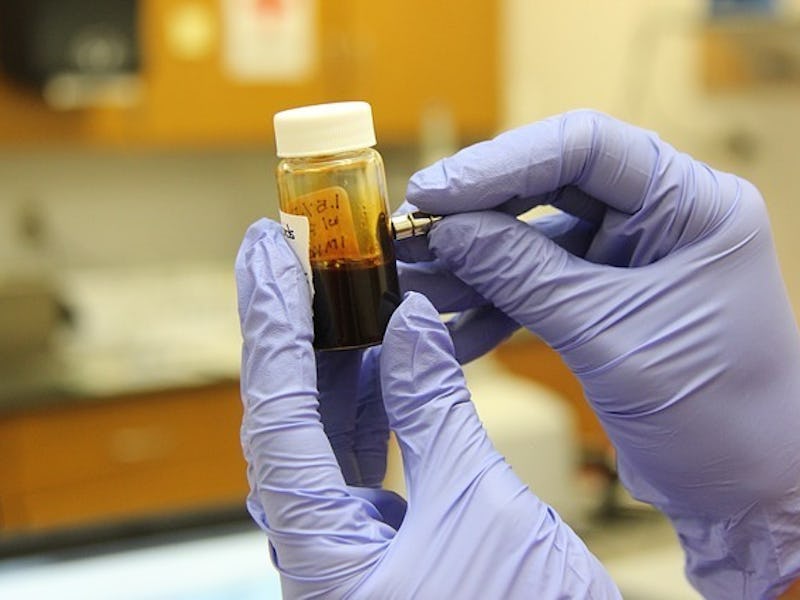Americans Are Terrified of the Future of Medicine
The Pew research team was surprised too.

It’s official—Americans are worried about biotechnology.
The Pew Research Center asked a representative sample of Americans across the country about their feelings about using technology to enhance human abilities. Perhaps predictably, biotechnology freaks people out: People are concerned that it will change what it means to be human and create a divide between the rich who can inject themselves with potions and the poor who cannot.
Roughly 4,700 Americans responded to the Pew survey, answering questions about using brain chips to enhance mental abilities, synthetic blood to increase physical abilities, and gene editing to reduce disease. Two-thirds of the responders said they wouldn’t want a brain chip or synthetic blood. Fifty percent of responders were against gene editing, but 48 percent saying they could possibly see a future where gene editing might be used to help alleviate disease among children.
“It’s surprising just to the degree that people tend to be more cautious than enthusiastic,” says Cary Funk, associate director of research at Pew, and lead author of the study. When respondents were asked how they felt about technology being used in the future, a majority reported feeling worried.
Respondents thought there were clear benefits to curing diseases, but definitely worried about what it would mean to enhance how people think and what they can do.
And as often as people pointed to things like iRobot as an example of technology taking over, the biblical mark of the beast was also widely cited. Religion played a strong role in how people thought about these issues: the more religious a person was, the more they saw biotech as going too far.
The other pattern that really stood out was that people saw these enhancement technologies as a tool for creating bigger social disparities. “It sounded like something that would be only available for the wealthy,” Funk said people repeatedly proclaimed, prefacing the enhancement of choice in the future to the high cost of plastic surgery.
The fact that most people are worried about what it means to push the boundaries of being human probably means that by the time we can actually get cybernetic arms or eliminate disease, we might have found a way to deal with the inequalities in the system.